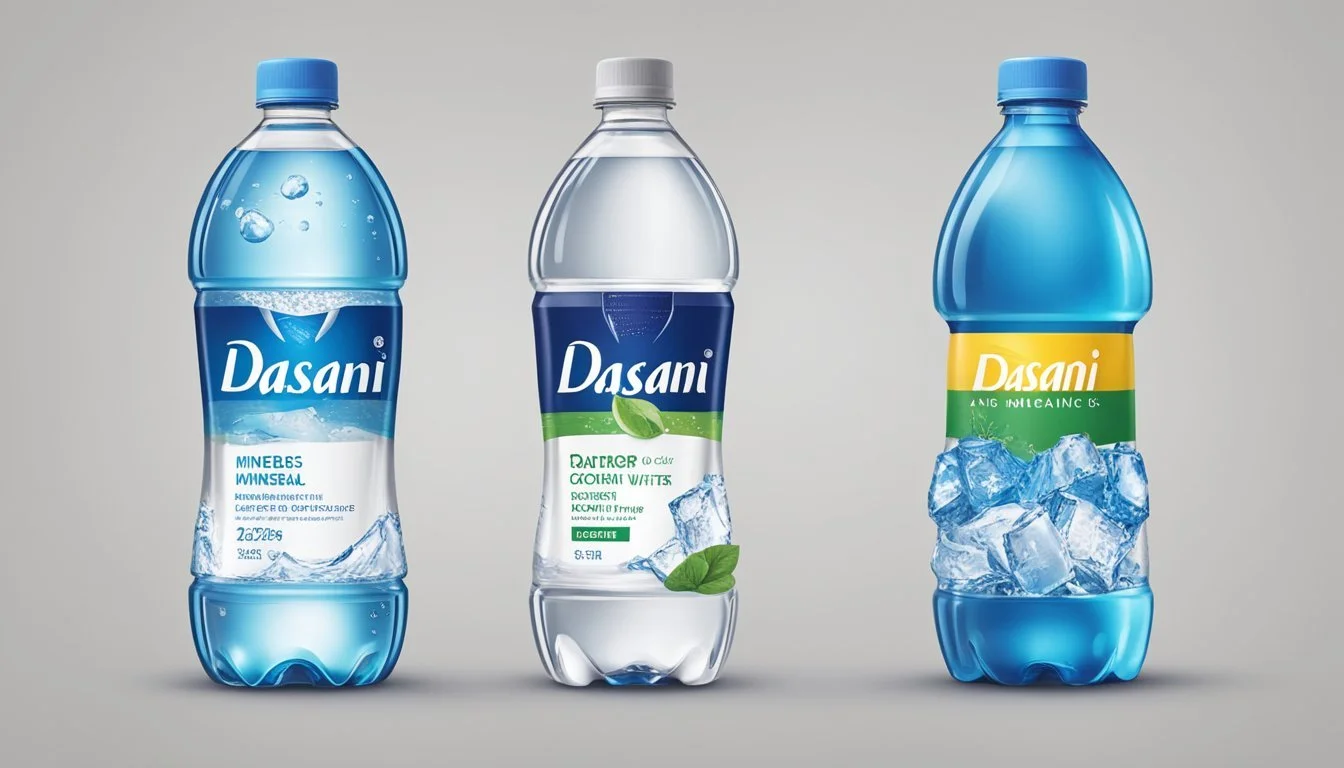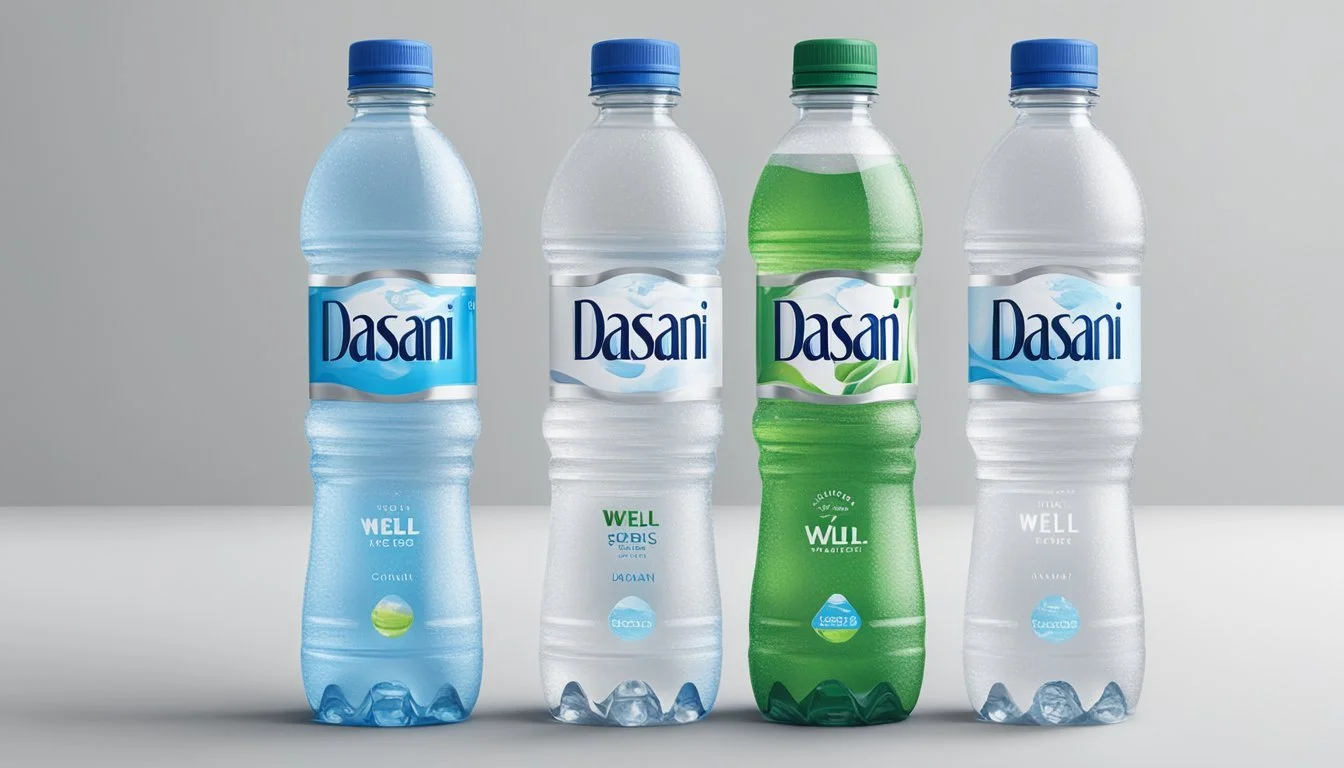The Well vs. Dasani
Comparing Quality, Taste, and Value
When it comes to choosing bottled water, The Well and Dasani are often compared by consumers for their taste, quality, and overall value. While Dasani is a recognizable name in the bottled water market, The Well has been gaining popularity for its emphasis on source purity and sustainability.
Dasani, owned by Coca-Cola, offers a purified water product that is treated with minerals for taste. Despite its widespread availability, it has faced criticism for its use of added minerals and potential environmental impact. In contrast, The Well prides itself on offering water that is sourced from natural aquifers, promising a fresh and unaltered taste that many find appealing.
For those prioritizing taste and purity, The Well may be the preferable option due to its natural sourcing and lack of added substances, whereas Dasani’s accessibility and enhanced flavor profile cater to a different set of preferences. Whether you’re a casual water drinker or a hydration enthusiast, understanding these differences can help you make a more informed choice.
Background on Bottled Water Brands
Bottled water is a convenient hydration option, offered by brands like Dasani and The Well. Each brand utilizes distinct sources and filtration methods, resulting in unique tastes and mineral compositions.
Understanding Dasani
Dasani, a product from Coca-Cola, was launched in 1999 to tap into the growing demand for bottled water. It uses a modern reverse osmosis filtration process, ensuring the water is purified by removing impurities.
This brand adds a blend of mineral salts to enhance the taste. These minerals are introduced intentionally, contributing to Dasani's signature, slightly mineral-like flavor. Such additions can influence consumer preference, especially those looking for a specific hydration experience.
Dasani's widespread availability makes it a common choice in vending machines, grocery stores, and drug stores across the United States.
The Well Water Overview
The Well is sourced from natural springs, emphasizing its spring water origin. Unlike the highly processed water of Dasani, The Well prides itself on maintaining natural mineral content. This approach appeals to those seeking an authentic, unaltered water experience.
With fewer added minerals, the taste of The Well is described as clean and pure. The preservation of its natural mineral content helps differentiate it from other bottled water brands.
The Well targets consumers valuing natural sourcing and minimal processing, positioning itself as a premium alternative in the bottled water market.
Source and Purification Processes
Understanding the source and purification methods of bottled water can significantly influence consumer choices. This section addresses the origins and treatment processes of Dasani and The Well.
Dasani's Filtration Method
Dasani utilizes municipal tap water as its primary source. This water undergoes a rigorous purification process that includes reverse osmosis, which effectively removes impurities and contaminants.
To enhance taste, Dasani adds a specific mix of minerals after purification. The process involves granular activated carbon filtration to absorb volatile organic compounds and chlorine, ensuring clean and safe drinking water. The meticulous filtration techniques place Dasani in the category of purified water, similar to Aquafina and Smartwater.
The Well's Natural Sources
The Well sources its water from pristine natural springs and rhyolite-filtered underground aquifers. The water from these sources is naturally filtered through volcanic rock, which imparts essential minerals and electrolytes.
This natural filtration process provides The Well with a unique taste and high mineral content. The emphasis is on minimal human intervention, focusing on preserving the natural properties of the water. With groundwater origins, The Well stands apart from brands like Dasani, which rely on more intensive purification techniques.
By leveraging natural springs and underground sources, The Well offers a distinctive alternative to more heavily processed bottled waters. The brand capitalizes on the purity and mineral richness of its sources to appeal to health-conscious consumers.
Health and Safety Standards
When comparing The Well and Dasani, health and safety standards are crucial factors. Both brands must comply with regulations set by the FDA (Food and Drug Administration) and EPA (Environmental Protection Agency). These agencies ensure bottled water is safe for consumption.
FDA regulations address contaminants like lead and bromate. Bottled water must meet strict limits for these substances. Lead levels, for example, must be below 0.005 mg/L. Bromate, a byproduct of water disinfection, has a limit of 0.010 mg/L.
Dasani is known for its purification process, including reverse osmosis. The Well also focuses on removing harmful contaminants and maintaining safety standards.
pH level is an important parameter. A balanced pH between 6.5 and 8.5 ensures water is neither too acidic nor too alkaline. Both brands typically fall within this range, providing a neutral pH balanced drinking experience.
Antioxidants are not usually a primary concern in bottled water, but some brands market their water as containing beneficial minerals. The Well emphasizes natural mineral content, while Dasani adds minerals for taste.
Health benefits include hydration and essential mineral intake. Both The Well and Dasani provide clean, safe water, but their sources and treatment methods differ.
EPA standards also ensure contaminants are minimized. The Well promotes its natural filtration, while Dasani's rigorous purification process removes a wide range of impurities.
In summary, both brands adhere to stringent health and safety standards, ensuring consumers receive high-quality, safe drinking water.
Mineral Content and Health Benefits
The Well and Dasani bottled waters vary significantly in their mineral content, impacting their overall health benefits.
The Well is known for its higher mineral content. It often contains natural minerals like calcium, magnesium, and potassium. These minerals are essential for maintaining healthy bones, muscle function, and overall hydration.
Dasani, on the other hand, is purified tap water with added minerals for taste. The key electrolytes typically found in Dasani include calcium chloride, magnesium sulfate, and potassium chloride. These additions can enhance flavor and provide modest health benefits.
Mineral The Well (mg/L) Dasani (mg/L) Calcium 40-60 8-10 Magnesium 20-30 4-5 Potassium 5-10 5-10
While both waters provide these essential minerals, The Well offers a naturally higher alkalinity which can help neutralize body acidity. Alkaline water is thought to balance pH levels, although scientific backing is still limited.
Calcium is vital for bone strength and plays a role in blood clotting. Magnesium supports muscle and nerve function, as well as energy production. Potassium aids in regulating fluid balance, muscle contractions, and nerve signals.
In sum, The Well generally has a higher content of these beneficial minerals, contributing to its perceived health benefits. Conversely, Dasani's mineral content, while lower, still offers basic electrolyte support, making it a suitable choice for daily hydration.
Taste Profile Comparison
The Well and Dasani offer distinct taste profiles that cater to different consumer preferences.
The Well is renowned for its clean and crisp taste. Regular consumers often report a lack of any metallic or mineral aftertaste, which makes it a popular choice for those who prefer a pure water flavor.
Dasani, on the other hand, has a unique taste profile. The brand adds minerals such as magnesium sulfate, potassium chloride, and salt to enhance flavor. This results in a slightly mineral flavor that some consumers appreciate while others might find less appealing.
Comparison Factor The Well Dasani Taste Clean, Crisp Slightly Mineral Added Minerals None Magnesium, Potassium, Salt Consumer Preferences Pure Flavor Seekers Those Who Prefer Enhanced Flavor
Water taste preferences are highly subjective. Some people enjoy the pure and crisp taste of The Well, while others might prefer the slight mineral undertones in Dasani.
In terms of mineral flavor, Dasani’s added minerals provide a distinct taste. This can make the water feel less bland, but may also introduce a slight metallic aftertaste for some palates.
Consumer preferences play a significant role in the choice between The Well and Dasani. Their taste profile choices indicate varied preferences for pure vs. enhanced flavors.
Environmental Impact and Sustainability
The environmental impact of bottled water is a significant concern. Both The Well and Dasani engage in practices that affect their sustainability.
Water Source Conservation: Ensuring the source of the water is managed responsibly is crucial. The Well and Dasani claim to adopt sustainable water sourcing.
Packaging: Packaging plays a key role in environmental footprint. The Well focuses on using environmentally friendly materials. Dasani also aims to incorporate recycled content in their bottles.
Bottling Processes: Efficient bottling processes help reduce energy consumption. Both brands have adopted measures to minimize their carbon footprint during production.
Waste Management: Proper recycling and waste management practices are essential. The Well emphasizes reducing waste through innovative packaging designs. Dasani promotes recycling initiatives to handle bottle waste effectively.
Eco-Friendly Options: Premium brands often present eco-friendly alternatives. The Well highlights their commitment to sustainability with biodegradable options. Dasani's efforts include lightweight bottles to minimize material use.
Consumer Awareness: Encourage consumers to make environmentally conscious choices. Both The Well and Dasani prioritize educating their customers about sustainability practices.
Table: Environmental Aspects
Aspect The Well Dasani Water Source Sustainable sourcing Sustainable sourcing Packaging Eco-friendly materials Recycled content Bottling Process Energy-efficient Carbon footprint reduction Waste Management Innovative designs Recycling initiatives Eco-Friendly Options Biodegradable bottles Lightweight bottles
Both brands aim to reduce their ecological footprints through these methods.
Adopting greener practices plays a significant role in their commitment to sustainability.
Market Presence and Consumer Demand
Dasani, a prominent brand owned by The Coca-Cola Company, has a significant market presence. With its recognizable blue packaging and extensive distribution network, Dasani is a fixture in many vending machines, supermarkets, and convenience stores. The company's emphasis on purified water with added minerals has resonated well with consumers seeking a clean and crisp taste.
The Well, a lesser-known competitor, focuses on niche markets. Targeting environmentally-conscious consumers, The Well emphasizes sustainable sourcing and eco-friendly packaging. Although not as widely available as Dasani, it caters to an audience that prioritizes environmental impact over brand recognition.
Consumer preferences in bottled water often revolve around taste, mineral content, and availability. Dasani's proprietary blend of minerals attracts those looking for a reliably fresh taste. The Well's emphasis on natural hydration and minimal processing appeals to health-conscious individuals.
Both brands face competition from a variety of other bottled water companies. Popular brands like Aquafina and Smartwater also vie for consumer attention, each offering unique selling points such as purification processes or added electrolytes for enhanced hydration.
In terms of demand, Dasani enjoys a steady and broad consumer base. Its presence in vending machines across numerous locations ensures easy access, contributing to its strong market position. The Well, while not as omnipresent, has seen growing interest, particularly among younger consumers who value sustainability.
Dasani's dominance in the market is supported by Coca-Cola's extensive marketing and distribution capabilities. Meanwhile, The Well relies on a grassroots approach, leveraging social media and community-based marketing to build its consumer base.
Pricing and Availability
Both Dasani and The Well offer different pricing strategies and market reach which impact consumer choices and convenience.
Dasani's Pricing Strategy
Dasani, a brand owned by The Coca-Cola Company, is priced to appeal to a broad consumer base. It is commonly found in grocery stores, convenience stores, and vending machines.
Retail prices for Dasani vary, but they are typically on the lower end of the spectrum, making it an accessible option for many. Multi-pack options offer further savings per bottle, appealing to bulk purchasers.
Dasani’s extensive distribution network ensures that it is available at various retail locations, which boosts its convenience for consumers on the go. This widespread availability means consumers can easily purchase Dasani whenever they need it, whether they are traveling, working, or shopping.
The Well's Market Reach
The Well is positioned as a premium bottled water brand, often priced higher than mainstream options like Dasani. This price point reflects its marketing towards consumers seeking a more exclusive or refined water drinking experience.
Limited availability of The Well is a notable difference. It is typically found in specialty stores, high-end grocery chains, and online platforms. This limited distribution can reduce convenience for those seeking it in more common retail environments or vending machines.
While The Well's higher price can be a barrier for some consumers, its niche market appeal attracts those prioritizing quality and brand prestige. The availability in select, upscale venues also enhances its brand's exclusivity and perceived value.
Packaging and Branding
Dasani, a well-known brand under the Coca-Cola umbrella, has undergone a significant transformation in 2024. The new visual identity system (VIS) features a lighter "celeste blue" color palette and wave designs inspired by the "S" in the Dasani script. This refreshed look aims to catch consumers' eyes and differentiate Dasani on store shelves.
The Well, although less well-known than Dasani, has opted for a minimalist design approach. Their packaging uses muted earth tones and simple, elegant typography. This style aligns with their branding as a natural and premium bottled water choice, appealing to environmentally conscious consumers.
Both Dasani and The Well emphasize sustainability in their packaging. While Dasani has committed to using recycled PET plastic in their bottles, The Well has introduced biodegradable and compostable packaging options. This focus on eco-friendly materials is increasingly important to modern consumers.
When it comes to branding, Coca-Cola leverages its expansive marketing resources to promote Dasani. This includes widespread advertising campaigns, sponsorships, and strategic partnerships. The brand’s visibility is nearly ubiquitous, making Dasani a household name.
In contrast, The Well relies on niche marketing and word-of-mouth to build its brand. They focus on health and wellness communities, positioning themselves as a premium alternative. Their branding emphasizes purity and sustainability, resonating with a specific segment of the market.
Key Comparisons
Aspect Dasani (Coca-Cola) The Well Packaging Design Light "celeste blue," wave designs Muted earth tones, simple typography Sustainability Recycled PET plastic Biodegradable, compostable materials Branding Focus Widespread advertising, strategic partnerships Niche marketing, word-of-mouth Market Position Mass-market, highly visible Premium, health and wellness communities
Both brands have distinct approaches to packaging and branding, each appealing to different consumer preferences.
More About The Well
Cascade Mountain vs The Well: Which Bottled Water is Better?
Hawaiian Springs vs The Well: Which Bottled Water is Better?
Icelandic Glacial vs The Well: Which Bottled Water is Better?
Mountain Valley Spring Water vs The Well: Which Bottled Water is Better?
Nestle Pure Life vs The Well: Which Bottled Water is Better?
Richard's Rainwater vs The Well: Which Bottled Water is Better?
The Well vs Kirkland Signature: Which Bottled Water is Better?
The Well vs Talking Rain AQA: Which Bottled Water is Better?
Whole Foods Italian Still Mineral water vs The Well: Which Bottled Water is Better?







